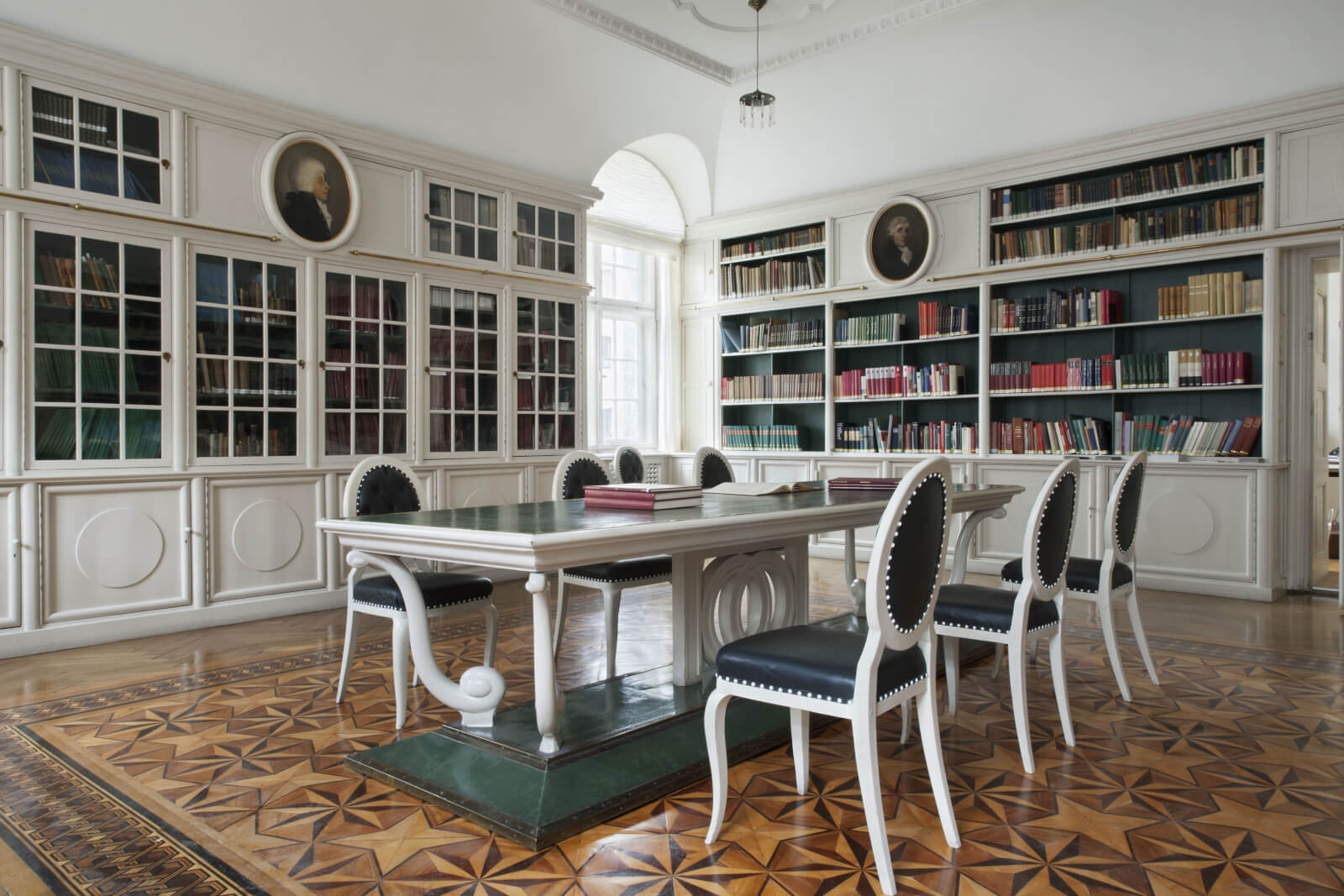
Bibliotheca Mozartiana
The Bibliotheca Mozartiana can trace back its origins to donations and bequests made by Mozart’s widow Constanze and by their two sons Carl Thomas and Franz Xaver. This is the only library in the world to specialize in Mozart and it owns the largest collection of original letters from the Mozart family as well as valuable music autographs, historical writings and printed scores. Its holdings continue to grow, our aim being to collect all the important publications on Mozart that have appeared throughout the world. The library is also seeking systematically to expand its collection of historical sources in the form of autographs, manuscripts, scores and books relating to the Mozart family and their historical circle.
The origins of the present library may be found in the library of the Cathedral Music Society and Mozarteum that was founded in 1841, a society that was split in two in 1880, leading to the formation of the International Mozarteum Foundation and the Cathedral Music Society (later the Cathedral Choir). In the wake of this split the scores and books previously held by the 1841 society were divided between the two new institutions. As a result certain parts of the historical collection – mainly church music – are now in the Archives of the Archdiocese of Salzburg, but the bulk of the holdings, including all of Mozart’s original letters and music autographs, is now preserved in the Bibliotheca Mozartiana.
But these historical holdings extend far beyond Mozart himself. The main reason for this state of affairs is that since 1841 the Cathedral Music Society and Mozarteum and its successor, the International Mozarteum Foundation, have seen it as an essential part of their activities to maintain a school of music under the name of the Mozarteum. In 1914 this school of music was raised to the status of a conservatory and in 1922 its running was taken over by the Austrian state. It was on the basis of this institution that today’s Mozarteum University finally came into existence.
Since the library served for a long time as a college and conservatory library in addition to promoting a practical and scholarly interest in Mozart’s works, a broad range of new scores and – to a lesser extent – writings on the theory of music were constantly being added to its holdings.
At the same time the library has repeatedly received important new additions in the form of gifts and bequests, the most significant of which have come from Mozart’s two sons. Not only did they own original compositions by their father, they had themselves collected music of every kind both from the earlier period and from their own day. As a result the library owns numerous autographs of works by Johann Georg Mederitsch, who was known as Gallus and who taught Franz Xaver Mozart, as well as works by Gluck, the Bach family, Beethoven and Carl Maria von Weber.
Last but by no means least the library houses the scores of works by contemporary composers that were commissioned by the Mozarteum Foundation and performed at its two annual festivals, the Mozart Week Festival and Dialogues.
So far only a part of the library’s extensive holdings have been made available to the general public via its online catalogue. Work is currently in progress to provide a full list of its holdings.
Audiovisual media may be found in the independent Mozart Sound and Film Collection, the largest specialized archive for sound and video recordings relating to Mozart’s life and works.
For German readers, further information may be found in
Johanna Senigl, “Bibliothek der Internationalen Stiftung Mozarteum” in Handbuch der historischen Buchbestände in Deutschland, Österreich und Europa, ed. Bernhard Fabian (Hildesheim: Olms Neue Medien, 2003), digitalized by Günter Kükenshöner and accessible at Uni Goettingen
Ulrich Leisinger, “Die Bibliotheca Mozartiana der Stiftung Mozarteum Salzburg: Eine Spezialbibliothek im Wandel der Zeiten”, Forum Musikbibliothek: Beiträge und Informationen aus der musikbibliothekarischen Praxis, 31 (2010): 214–24 and 314–320.